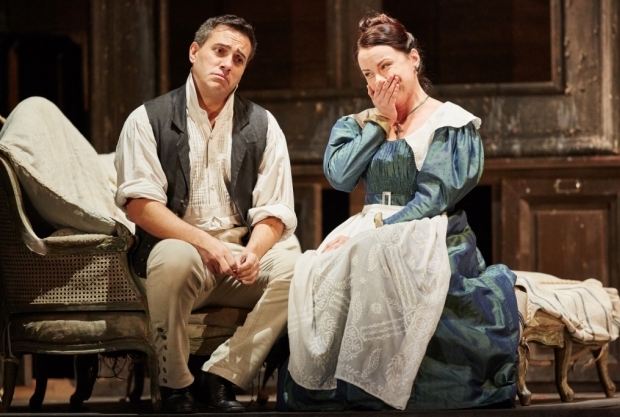Le nozze di Figaro (Royal Opera House)

© Mark Douet
David McVicar‘s 2006 production may appear scenically straightforward but in fact it subverts the opera to an extent that would send the ROH booers into paroxysms if they understood it. Rather than 18th-century Seville, he brings the action forward to 1830, places it in a French château and links the chastisement of Count Almaviva to the fall of the Bourbons. For lovers of period drama, McVicar's update has the added attraction that men wear butch breeches and frock coats rather than wigs and beauty spots.
Original movement director Leah Hausman returns to direct this latest revival and in so doing retains all its polish and clarity. Indeed, I noticed several felicities that had escaped me on previous viewings. Tanya McCallin‘s mansion set, always a draw in its own right with its graceful transition from act one to act two, is populated by a peripheral gallery of below-stairs supernumeraries who come to the fore during one of the busiest overtures ever staged.
'A name to watch'
The principal men are a finely matched pair of adversaries; you can practically hear the snorting and stamping as Erwin Schrott (Figaro) and Stéphane Degout (Count Almaviva) trace wary circles round one another. Schrott in particular, a boyish Figaro in 2006 and a buffed-up hunk in 2010, now disappears into the role. Yes, he hams it up, but in a way that stays true to Beaumarchais’ original play, and vocally he’s both incisive and expressive. And Degout, a wonderful Mozartean ever since his earliest Papageno, is aristocratic both in demeanour and delivery, with a predatory manner that’s ripe for a fall.
Anita Hartig and Ellie Dehn share similar voice types, which makes their fourth-act shenanigans when Susanna and the Countess swap identities more convincing than usual. Each has a feather-light timbre – indeed, there were moments in "Dove sono" when Dehn's could have done with guy ropes to weigh it down – and they bring such airiness to their big duet, "Sull’aria", that they all but waft away on the breeze.
The scene stealer in this revival is Heather Engebretson as Barbarina, who peeps in like a schoolgirl then pipes up like a diva. The young American is a name to watch and a perfect partner for Kate Lindsey‘s gangling, hopelessly priapic Cherubino. Of the opera’s other comic roles, the great mezzo Ann Murray is on her best vinegary form as Marcellina, but the Bartolo and Basilio of Carlo Lepore and Krystian Adam are a touch under-characterised.
Ivor Bolton conducts a ROH Orchestra composed of stay-at-homes from the company’s Japanese tour, no doubt bolstered by deps, but the standard is as high as one would expect of a band bearing the house name. Despite some fastish tempo choices, matters are mostly (but not invariably) secure between pit and stage, so Mozart carries the day and bliss is king.










